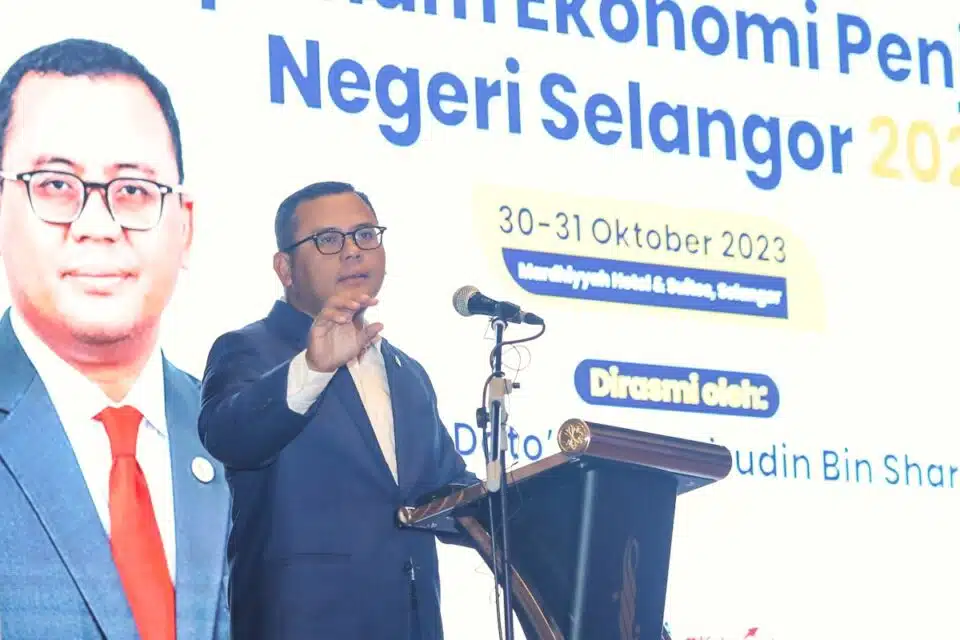By Yasmin Ramlan
SHAH ALAM, Oct 30 — The Selangor government is looking into the drafting of an enactment to empower the care economy, which is a women-dominated sector.
Menteri Besar Dato’ Seri Amirudin Shari emphasised the need for initiatives concerning the care economy to be implemented immediately, citing several frameworks that were first initiated by the state.
“At one point, we had to draft regulations or policies before we go into implementing them. Previously, we have implemented similar regulations, such as those on food truck businesses operating from home at the state level during the (Covid-19) pandemic.
“The same applies to the care economy, which I believe we, at the state level, cannot wait for others to execute,” he said at the launch of the Selangor Care Economy Symposium 2023 at Mardhiyyah Hotel, here, today.
Also present was state executive councillor for women empowerment and welfare Anfaal Saari.
Earlier in his address, Amirudin highlighted the current situation, where many women are forced to leave their careers to care for their children and ageing family members, which resulted in some women bearing the burden of excessive expenses related to securing high-quality care facilities.
Expressing concerns about the unforeseen implications of the situation, Amirudin hoped that the symposium would assist the state government in passing legislation relating to the care economy.
Citing data from the Statistics Department (DOSM) on the average lifespan in Selangor, Amirudin said that the state has transitioned into an ageing society due to an increased lifespan of 78.1 years, surpassing the national average of 74.8 years.
“Secondly, the birth rate in Selangor has decreased from 2.0 to 1.5 in the past 10 years, which is lower than the national rate of 1.7 children per family.
“These two aspects will make Selangor a super-aged society with a high number of seniors over 60 and a declining number of working-age individuals who must sustain the economically unproductive for 18 to 19 years after retirement,” he said.
According to the United Nations Economist Network, care economy is defined as a new way of economic thinking where “care is no longer reduced to a commodity, a personal choice or a family obligation” but recognised as work that is of public good and benefits societies and economies at large.
By formalising the care economy, societies must “stop freeriding on women’s unpaid and underpaid labour, and collectively assume the costs of quality care for all; and where all workers in the care sector enjoy equal pay for work of equal value”.





